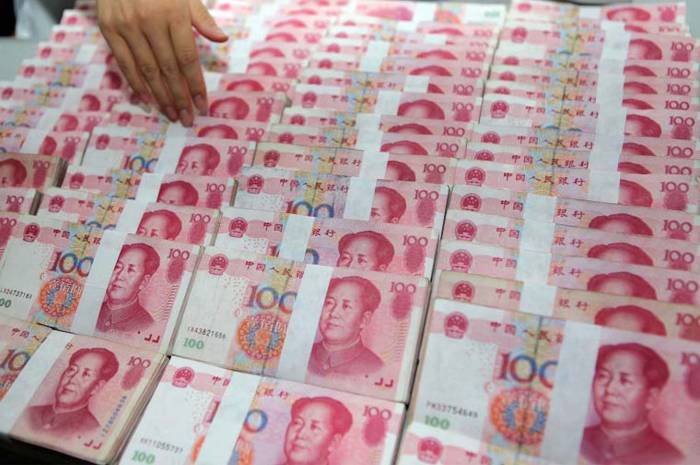The Chinese yuan could become the next currency whose strengthening may lead to serious disruptions in global markets. Leading analysts have expressed these concerns, pointing out that the carry trade strategy, which is actively being used with the Chinese currency, could cause significant capital movements and impact global economic stability, News.Az reports, citing quote.ru .
The carry trade strategy involves profiting from the difference in interest rates between different countries. Traders borrow in countries with low rates and invest in assets denominated in currencies with higher rates. This strategy was particularly popular in the Japanese market, where an ultra-loose monetary policy had been in place for a long time. However, expectations of an interest rate hike in Japan in July 2023 forced traders to close positions in yen, leading to significant fluctuations in financial markets worldwide. The Nikkei 225 index, a key indicator of the Japanese stock market, dropped by 12.4%, marking the largest decline in its history.
Analysts warn that a similar scenario could unfold with the Chinese yuan. China maintains low interest rates to support economic growth, making the yuan an attractive tool for carry trade, but also creating a risk of significant fluctuations if traders start to unwind these positions en masse.
Hong Guo, head of Asia Research at ANZ, cautions that Chinese exporters are holding large amounts in dollars, and with expectations of a rate cut in the U.S., they may begin converting these funds into yuan. This could trigger significant movements in financial markets, especially if the yuan strengthens unexpectedly.
Additional risks are also noted by Citibank analysts, who observe that the Chinese yuan has become even more popular among traders than the Japanese yen for carry trade strategies. If this trend continues, any significant strengthening of the yuan could put pressure on global markets, similar to what happened with the Japanese yen.
However, not all experts agree with these pessimistic forecasts. Vishnu Varathan, Chief Asia Economist at Mizuho Bank, believes that the yuan will not have as significant an impact on global markets as the Japanese yen. He notes that the yen is a highly liquid global currency, while the yuan’s exchange rate is still controlled by Chinese authorities. Varathan also points to differences in the economic challenges faced by Japan and China: the yen’s weakness is related to low interest rates in Japan, while the yuan’s weakness is driven by structural economic factors and geopolitical threats.
China’s economy has not fully recovered from the COVID-19 pandemic, creating additional risks for the yuan’s stability. Varathan emphasizes that the People’s Bank of China may need to lower rates to stimulate economic growth, which could further weaken the yuan.
Thus, the current situation in global financial markets remains highly uncertain. While some experts see the Chinese yuan as a new threat to global stability, others consider these concerns exaggerated. In any case, investors are closely monitoring developments, trying to anticipate how changes in the Chinese currency’s exchange rate might affect their investment strategies.







